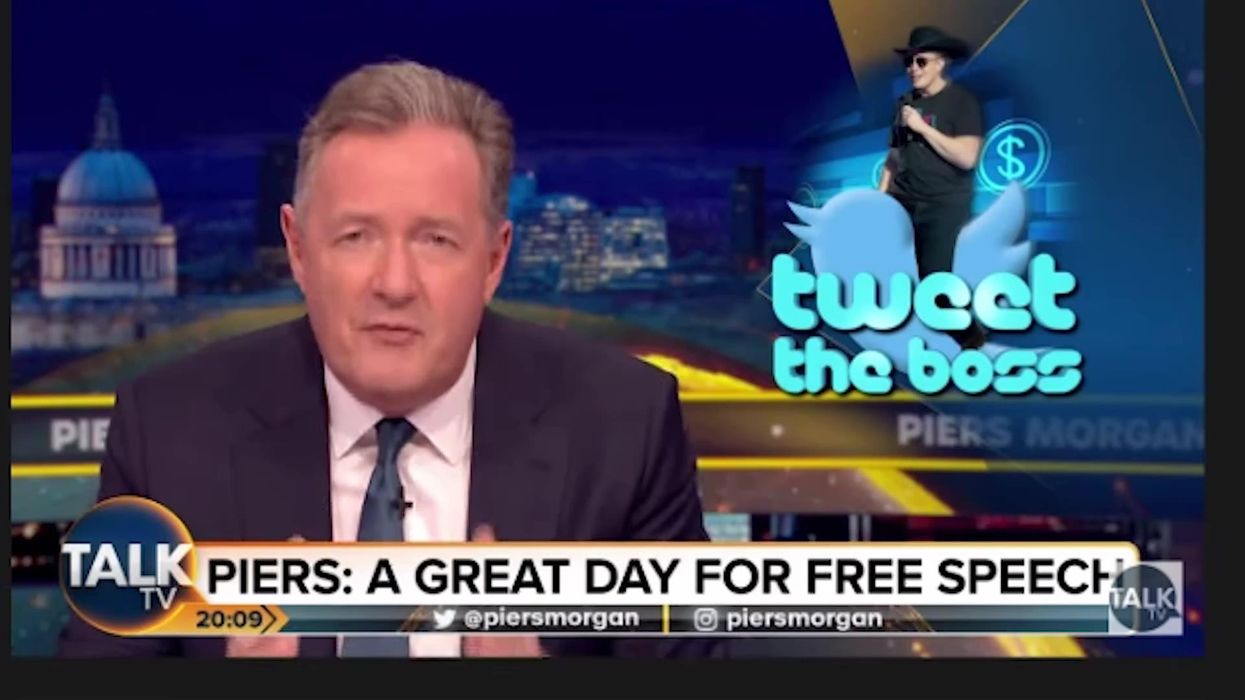Elon Musk has bought Twitter for a whopping $44 billion (£31 billion), and he’s been discussing his plans for the social media site as people threaten to leave.
The Tesla CEO has suggested he wants to make the platform more committed to free speech since making the purchase.
He’s now attempted to explain how he interprets free speech, after people began to speculate that he could be planning to reintroduce a number of banned users.
However, people still aren’t quite sure what he means.
Sign up to our free Indy100 weekly newsletter
Writing in a tweet on Tuesday, he said: "By 'free speech', I simply mean that which matches the law. I am against censorship that goes far beyond the law.
“If people want less free speech, they will ask government to pass laws to that effect. Therefore, going beyond the law is contrary to the will of the people.”
That’s all fine, but which law exactly is he referring to? That was the question on plenty of social media users’ lips.
There are several problems with your argument, I'm afraid. Firstly, political processes take time, and the technology of social media is always changing and adapting - meaning the law is playing catch-up, and the will of the people is usually ahead of it.\n\nSecondly... which law?— Tom Bacon (@Tom Bacon) 1651002558
Which law? Which government? Which people?— Grady Booch (@Grady Booch) 1651009982
What do you mean that which matches the law. The law specifically grants permission to curb "free speech" when it poses a clear and present danger, which is why you can't yell fire in a crowded theater.\n\nSo what do you mean, exactly?https://twitter.com/elonmusk/status/1519036983137509376\u00a0\u2026— Patricia Romero (@Patricia Romero) 1651026861
On the first day of maybe owning a social media company soon, man begins to realize how hard it is to own a social media company.https://twitter.com/elonmusk/status/1519036983137509376\u00a0\u2026— Donie O'Sullivan (@Donie O'Sullivan) 1651018464
was this translated from english to samoan and then burmese and then haitian creole and then back to englishhttps://twitter.com/elonmusk/status/1519036983137509376\u00a0\u2026— Matt Negrin, HOST OF HARDBALL AT 7PM ON MSNBC (@Matt Negrin, HOST OF HARDBALL AT 7PM ON MSNBC) 1651012387
"I simply mean that which matches the law"\n\nThe law: https://twitter.com/elonmusk/status/1519036983137509376\u00a0\u2026pic.twitter.com/zeadh44Knv— Damascus (@Damascus) 1651011917
In which country on this, the World Wide Web? https://twitter.com/elonmusk/status/1519036983137509376\u00a0\u2026— Beth Ashton (@Beth Ashton) 1651006257
Musk sealed the deal on Monday (April 25) after initially purchasing a nine per cent stake in the company and becoming a board member.
Twitter initially resisted his plans for a complete takeover, implementing a "poison pill" to make the purchase more expensive and challenging to acquire. Musk since updated his proposal and managed to get Twitter to agree.
He previously released a statement saying: “Free speech is the bedrock of a functioning democracy, and Twitter is the digital town square where matters vital to the future of humanity are debated."
People have raised concerns about changes to the platform after the purchase, with Amnesty International saying in a statement: "Regardless of ownership, Twitter has a responsibility to protect human rights, including the rights to live free from discrimination and violence and to freedom of expression and opinion – a responsibility that they already too often fail.
“We are concerned with any steps that Twitter might take to erode enforcement of the policies and mechanisms designed to protect users. The last thing we need is a Twitter that willfully turns a blind eye to violent and abusive speech against users, particularly those most disproportionately impacted, including women, non-binary persons, and others.”
Have your say in our news democracy. Click the upvote icon at the top of the page to help raise this article through the indy100 rankings.














